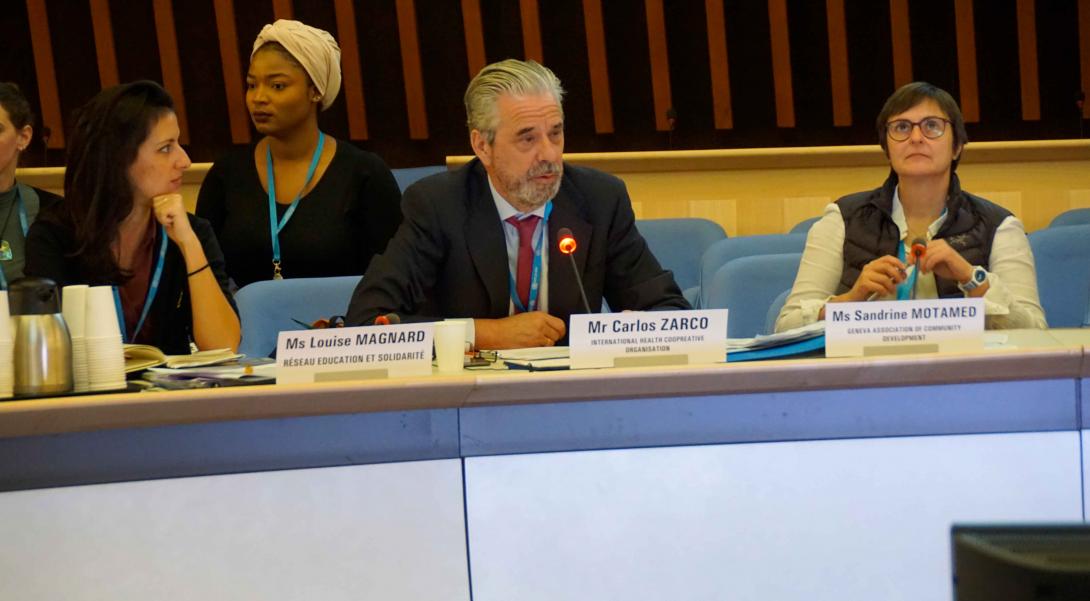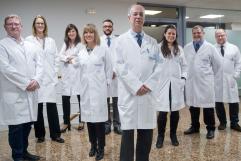
“Although we are concerned about SDG3, our work has repercussions on the other goals”
The Fundación Espriu is the second network in the world of healthcare cooperatives and it upholds its founder’s international vocation.
Healthcare cooperativism can help to reach some of the Sustainable Development Goals and the Fundación Espriu has already been working on them for some time now. Doctor Josep Espriu was the world ambassador for healthcare cooperativism and the Fundación Espriu, the second network in the world of healthcare cooperatives according to the World Cooperative Monitor 2019, has maintained his legacy over all these years. Doctor Carlos Zarco is the General Manager of the Fundación Espriu, the Medical Director of the Hospital Universitario HLA Moncloa and he presides over the International Health Cooperative Organisation, IHCO. He explains that the Fundación Espriu works alongside the United Nations to detect in which SDGs healthcare cooperativism may have the greatest impact. “There are people who criticise them because they believe that they are wishes rather than goals. In some countries they have become more fashionable. We saw that we had an important capacity to make an impact on some of the SDGs, from the point of view of the Fundación Espriu and healthcare cooperativism’s representation.”
We saw that we had an important capacity to have repercussions on some of the SDGs, from the point of view of the Fundación Espriu and healthcare cooperativism’s representation.
With over two and a half million policy holders and almost 166,000 consumer cooperative members, the Fundación Espriu represents a social medicine and a healthcare cooperativism that are essential in the organisation and dialogue amongst the most important elements of the medicine: the healthcare users and the healthcare professionals. Carlos Zarco acknowledges that there are some SDGs that a priori are not thought about from the sector, but where they have an indirect influence. “A cooperative of doctors that is fighting for decent work, for bringing an end to the middlemen between doctors and patients, basically is concerned with the SDG3, on health and well-being”, but it also works to improve the fifth goal to encourage gender equality, SDG8 for decent work and SDG10, which attempts to reduce inequalities. “Although we are thinking about SDG3, in reality, our work has repercussions on the other goals,” he adds.
Additionally, according to the study Analysis of the socio-economic impact of the values and principles of the Social Economy in Spain, prepared by Abay Analistas under the management of Cepes, the Social Economy brings in 6,229 million euros per year in benefits to society; 3,930 million euros per year in wages for groups that are difficult to employ and 1,770 million euros per year in savings for the Public Administrations. Due to its importance, healthcare cooperativism has been put on the UN’s agenda, which acknowledges the important role played by the cooperatives in extending access to healthcare and it recommends governments to support this sustainable business model that makes a direct contribution to universal healthcare cover.
INDICATORS
The Manager of the Fundación Espriu is convinced that some of the goals can be achieved within the time limit and one of the most important advantages is that “finally, a date has been set.” Additionally, “these goals start to have indicators and targets on different scenarios. In the area of international cooperativism, they are working on indicators for each of the sectors with the aim of seeing the progress,” which opens up the path to achieving them. •


